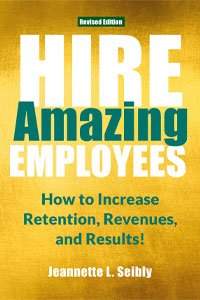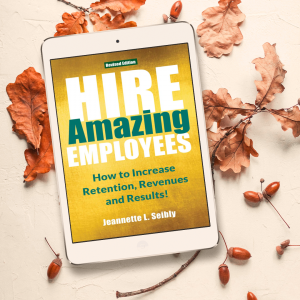
While the answer is “yes,” too many bosses and leaders derail their careers when they make mistakes, experience failure, or find themselves in conflict. Then, to make matters worse, they attempt to rectify it too quickly, lie about it, or fail to take responsibility by blaming others or the situation.
Remember, the same mindset that created the problem should not be used to solve it—it will only make it worse.
Have you:
- Used a disrespectful tone of voice or become upset with your boss when s/he is critical of your work? Or the work of your team?
- Lost your patience with a customer or team member? As a result, do they now refuse to work with you?
- Offered inappropriate or incorrect solutions and then denied doing so? As a result, your co-workers are upset and want you fired.
- Used microaggressions (e.g., men are more intelligent than women) when talking with your team. Result? They are offended.
- Been given feedback by your boss or team, and you were defensive and rude?
While these may sound extreme, too often, you have done a version of them. (We all have.) When these issues occur, you can derail your career or job promotion opportunities without knowing it!
How to Resolve Avoidable Mistakes
Pause and Breathe. Mindfulness is important. Say to yourself, “I will work through this and get the help I need to improve.” Now, take action to resolve your mistake, failure, or conflict.
Contact Your Executive Coach as soon as possible before you make the mistake, failure, or conflict worse. Complete the “What Worked? / What Didn’t Work?” exercise to provide objective insights.
Take Responsibility. After devising a plan with your coach, talk with your boss. Map out who, what, when, where, and why it needs to be done. Remember, “hoping the issue will go away” is a strategy for failure! This is a golden opportunity for you to be the boss and leader who can make a positive difference – failure to do so will result in irrevocable loss of trust.
Apologize. Offering apologies will be the next thing to do. Saying, “I apologize” is easy. But your apology must be genuine so your boss, co-workers, team members, and customers can hear you! While these two words seem simple, you may resist saying them! Remember, pay now by taking responsibility or later when you’ve been fired.
Do It! Enough talking about it. Get into action. Be willing to dance (be flexible) in the conversation—remember, the actual discussion will be different than the conversation you mapped out in your head. Listening to their concerns can turn around their negative feelings towards you and get you on the right track. Yes, you must take the time and offer the patience to solve the mistake, failure, or conflict. Remember, keep talking to your executive coach throughout the process.
©Jeannette Seibly 2024 All Rights Reserved
 Jeannette Seibly is a Talent Advisor/Leadership Results Coach with over 31 years of practical experience guiding leaders and bosses to improve their hiring, coaching, and managing practices and produce amazing results! And yes, achieving business success always starts with having the right people in the right jobs! She has been an Authorized PXT Select® Partner for over 32 years. Contact Jeannette to learn more about these state-of-the-art job-fit assessment tools or how to coach and manage your people to achieve incredible results.
Jeannette Seibly is a Talent Advisor/Leadership Results Coach with over 31 years of practical experience guiding leaders and bosses to improve their hiring, coaching, and managing practices and produce amazing results! And yes, achieving business success always starts with having the right people in the right jobs! She has been an Authorized PXT Select® Partner for over 32 years. Contact Jeannette to learn more about these state-of-the-art job-fit assessment tools or how to coach and manage your people to achieve incredible results.
A note from Jeannette: Mistakes, failures, and conflicts can be resolved if you’re willing to do the work and get into action. But if you act too quickly, depending on the problem, it will only make it worse. If this has happened to you recently, now is the time to talk it out using my 31+ years of leadership and management issues to resolve it — before it’s too late. Contact me now!
 Now is the time to get into focused action! Are there days you dread doing what is needed to manage your people, projects, and team’s financial performance? You’re not alone! Everyone has those days! But continuing to hide behind excuses only hurts you and your future promotability. I have extensive experience and wisdom guiding bosses and leaders to hire, coach, and manage their teams successfully – this includes getting you out of the way and working with and through people effectively to achieve the results required. Contact me to learn more about my in-depth, one-on-one, customized coaching programs.
Now is the time to get into focused action! Are there days you dread doing what is needed to manage your people, projects, and team’s financial performance? You’re not alone! Everyone has those days! But continuing to hide behind excuses only hurts you and your future promotability. I have extensive experience and wisdom guiding bosses and leaders to hire, coach, and manage their teams successfully – this includes getting you out of the way and working with and through people effectively to achieve the results required. Contact me to learn more about my in-depth, one-on-one, customized coaching programs.
 This book (“Hire Amazing Employees“) by Nancy Schick, NY Employment Attorney and Mediator, can help you improve your hiring process. I met Jeannette Seibly a few months ago In this Together Round Table, where I also learned about her book, Hire Amazing Employees. Since my clients frequently struggle with this task, I bought myself a copy and gave several as gifts. The book contains many helpful tips for avoiding the impact of hiring errors. Read the full testimonial here.
This book (“Hire Amazing Employees“) by Nancy Schick, NY Employment Attorney and Mediator, can help you improve your hiring process. I met Jeannette Seibly a few months ago In this Together Round Table, where I also learned about her book, Hire Amazing Employees. Since my clients frequently struggle with this task, I bought myself a copy and gave several as gifts. The book contains many helpful tips for avoiding the impact of hiring errors. Read the full testimonial here.


 Jeannette Seibly is a champion for success. As a leader, do you have bosses that are difficult for teams to work with? Jeannette’s depth of experience and wisdom can transform those bosses from hated to respected!
Jeannette Seibly is a champion for success. As a leader, do you have bosses that are difficult for teams to work with? Jeannette’s depth of experience and wisdom can transform those bosses from hated to respected!  Are you ready to build your confidence and success as a boss? The coach is in! Every boss and leader has their blind spots! They get in the way of being a results-producer! When tough times occur, and they will, asking for the right help is essential! I have extensive experience and wisdom guiding bosses to hire, coach, and manage their teams. Along the way, they achieve unprecedented results.
Are you ready to build your confidence and success as a boss? The coach is in! Every boss and leader has their blind spots! They get in the way of being a results-producer! When tough times occur, and they will, asking for the right help is essential! I have extensive experience and wisdom guiding bosses to hire, coach, and manage their teams. Along the way, they achieve unprecedented results. 
 Jeannette Seibly is a champion for bosses and teams delivering intended results. Does your company or department have a persistent problem? Jeannette’s depth of experience and wisdom guides clients to achieve intended dynamic results consistently!
Jeannette Seibly is a champion for bosses and teams delivering intended results. Does your company or department have a persistent problem? Jeannette’s depth of experience and wisdom guides clients to achieve intended dynamic results consistently!  The coach is in! Are you ready to build your confidence and success as a boss? A great boss works with an experienced executive coach as a sounding board. I have extensive experience and wisdom guiding bosses and leaders to hire, coach, and manage their teams. Along the way, they achieve unprecedented results.
The coach is in! Are you ready to build your confidence and success as a boss? A great boss works with an experienced executive coach as a sounding board. I have extensive experience and wisdom guiding bosses and leaders to hire, coach, and manage their teams. Along the way, they achieve unprecedented results. 
 How’s your leadership development progressing? Are you moving forward … or a tad stuck? Do you need a “nudge” and “clarification?” Want to accelerate and soar your results?
How’s your leadership development progressing? Are you moving forward … or a tad stuck? Do you need a “nudge” and “clarification?” Want to accelerate and soar your results? 
 Jeannette Seibly is The Leadership Results Coach. She has over 30 years of award-winning international experience as an executive consultant, speaker, and business author. Her clients surpass the norm by working through sticky situations and challenging relationships to become positive influencers.
Jeannette Seibly is The Leadership Results Coach. She has over 30 years of award-winning international experience as an executive consultant, speaker, and business author. Her clients surpass the norm by working through sticky situations and challenging relationships to become positive influencers.  This week’s PODCAST: Listen to Want to Achieve Great Results? Use Peer Coaching with my guest, Meredith Bell, on
This week’s PODCAST: Listen to Want to Achieve Great Results? Use Peer Coaching with my guest, Meredith Bell, on 
 This week’s PODCAST: Listen to How the pandemic led a professional copywriter, speaker and author to become an accidental artist with my guest, Debra Jason, on
This week’s PODCAST: Listen to How the pandemic led a professional copywriter, speaker and author to become an accidental artist with my guest, Debra Jason, on 



 Hiring the wrong person for an executive or critical position jeopardizes your company. However, this can be preventable when using a strategic selection system. Get essential hiring and selection tips by grabbing the Amazon International Best-Selling Book,
Hiring the wrong person for an executive or critical position jeopardizes your company. However, this can be preventable when using a strategic selection system. Get essential hiring and selection tips by grabbing the Amazon International Best-Selling Book, 